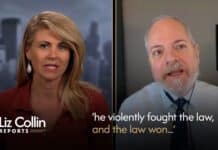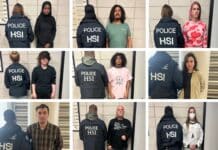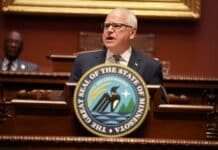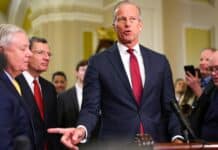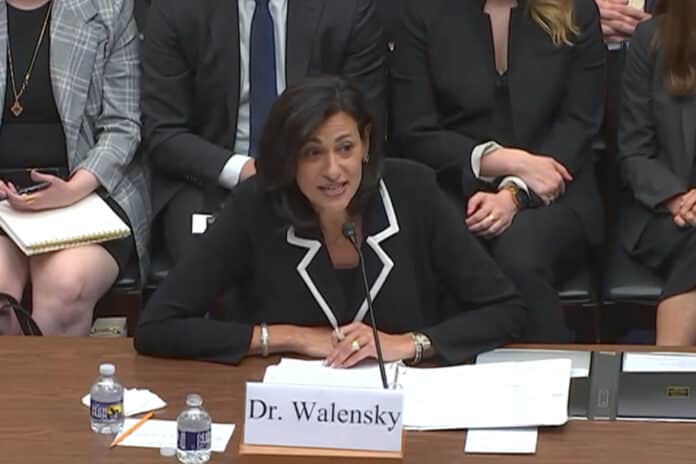
(The Center Square) — Members of Congress on Tuesday grilled the director of the U.S. Centers for Disease Control and Prevention about the effectiveness of the COVID-19 vaccines, whether the agency colluded with social media companies to suppress speech and a host of other topics.
Dr. Rochelle Walensky, who is stepping down from the agency at the end of the month, testified before the House Select Subcommittee on the Coronavirus Pandemic about her agency’s handling of COVID-19.
U.S. Rep. Brad Wenstrup, R-Ohio., chairman of the subcommittee, questioned whether the science backed up what the federal government claimed about the vaccine, specifically citing President Joe Biden’s statement, “if you’re vaccinated, you’re not going to be hospitalized, you’re not going to be in the intensive care unit, and you are not going to die.”
Walensky responded by saying that at the time of Biden’s speech the vaccine was 96% effective at preventing COVID-19 symptoms, but that “in medicine, we never say never.” Wenstrup agreed but said that Biden’s statement was so definitive that it qualified as misinformation.
Wenstrup told Walensky and the CDC that statements like that from such high-ranking officials were impermissible, suggesting that the individuals speaking to the pandemic should have been doctors in the field rather than politicians or “someone in a lab.”
When pressed further, Walensky said that the CDC at the time did not, and “still, to this day, do not have data on people who were coming into the hospitals who were vaccinated.” Wenstrup told her that the data surrounding it needed to be collected and closely examined.
U.S. Rep. Raul Ruiz, D-Ca., said the primary point of the hearing was to increase preparedness for future pandemics “so that we can more rapidly respond in a future public health crisis.”
Walensky told the subcommittee that when she started at the CDC, fax machines made up the primary mechanism to share data with and from the agency, preventing government and public health leaders from quick access to crucial information.
U.S. Rep. James Comer, R-Ky., who chairs the Oversight Committee, said the CDC flagged social media posts that they deemed to be misinformation, and asked, “did the CDC work with private companies to influence a censorship of dissent about vaccines?”
Walensky refused to answer, saying the topic is under court litigation.
Walensky also avoided answering if the CDC had worked with Meta, the parent company of Facebook and Instagram, to censor posts.
Her only comment was that the vaccine was the most important thing for getting the U.S. out of the pandemic and that “it was really important that the American people understood how well they work and how safe they are.”
U.S. Rep. Mariannette Miller-Meeks, R-Iowa, questioned if the rate of transmission in schools was low enough to not require school closures. Walensky responded by saying that after collecting data from schools in other countries that remained open and the local transmission rates in schools, they encouraged schools to reopen on a case-by-case basis.
Walensky said that one of the most important things of note from the pandemic was the fact that there was and still is no active infrastructure to get vaccines out in emergency situations.
Rep. Debbie Lesko, R-Ariz., commented on the CDC website’s lack of updates, focusing on the fact that the CDC still strongly recommends the wearing of masks without a contextual update on the page that the public sees.


